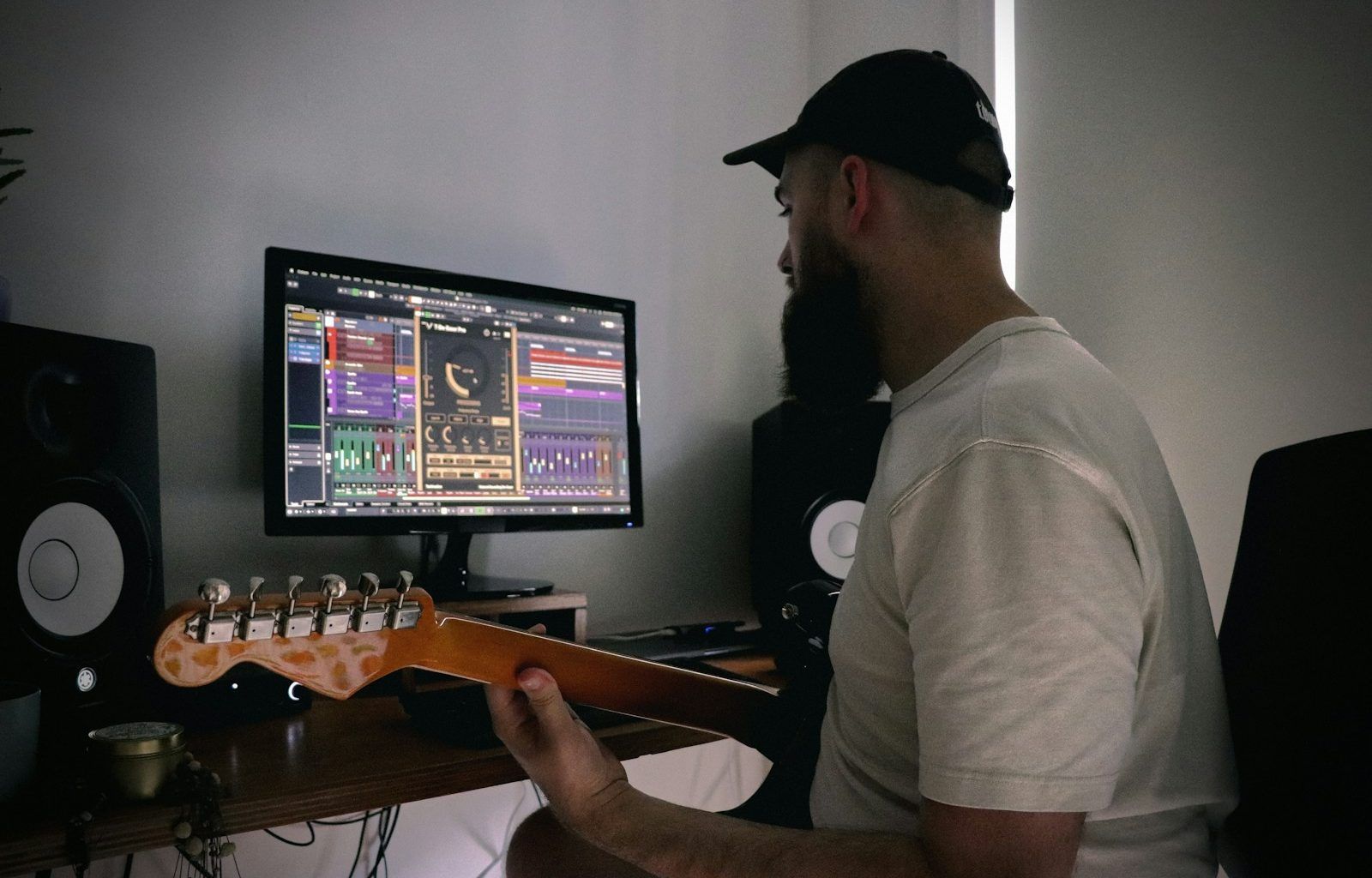When you hear the term “The Master Musician,” what comes to mind? Perhaps you think of someone who can create magic with their instrument, or maybe you imagine a composer whose melodies linger in your mind. The world of music is vast, and within it exists an extraordinary breed of individuals who dedicate their lives to mastering this universal language. But what truly makes someone a master musician?
Music is more than just sound. It’s an expression of emotion, a way to communicate without words, and a tool to connect people across cultures and generations. Becoming a master musician requires not only skill but also passion, dedication, and an innate ability to connect deeply with an audience. Let’s dive into what makes these individuals stand out and explore their journeys.
The Foundation of a Master Musician
Every master musician starts as a beginner. The path to mastery often begins in childhood, when curiosity about sound and rhythm takes root. It might start with banging on pots and pans or strumming an old guitar. For others, it begins with a parent’s encouragement or a school music program. Regardless of how it starts, the seed is planted early.
Practice is the cornerstone of becoming a master musician. Imagine a young child, wide-eyed and eager, holding their first violin. They may produce a sound that’s more squeak than music, but with time, guidance, and practice, those squeaks transform into beautiful notes. Consistent practice builds muscle memory, refines technique, and fosters confidence.
But it’s not just about practice. A true master musician also learns to listen. They listen to the nuances in others’ performances, the subtle shifts in tone, and the emotional layers in a piece of music. Listening develops an ear for detail, which is crucial for any musician aiming to master their craft.
Passion Fuels the Journey
While practice lays the foundation, passion is the fuel that keeps a musician moving forward. Master musicians are deeply in love with their craft. This love drives them to explore new techniques, push their boundaries, and strive for excellence. It’s this passion that keeps them awake at night, perfecting a piece or improvising new melodies.
Take, for instance, a jazz musician. Jazz is an art form that thrives on improvisation. A master jazz musician must not only understand music theory but also feel the rhythm and flow of the moment. Their passion allows them to take risks, experiment, and create something entirely unique. Without that burning desire, they might never reach such heights.
Overcoming Challenges Along the Way
The journey to becoming a master musician is not without its challenges. Every musician faces obstacles, whether it’s self-doubt, financial difficulties, or physical limitations. What sets a master apart is their ability to persevere.
Consider a pianist who develops a repetitive strain injury. For many, this could mean the end of their musical journey. But a master musician finds ways to adapt. They might explore new techniques, switch instruments, or focus on composing instead of performing. Their resilience is what keeps them going, even when the odds seem insurmountable.
Moreover, the path to mastery requires a willingness to fail. Mistakes are inevitable, but they are also valuable learning experiences. Each missed note or off-key performance teaches a lesson. A master musician embraces these lessons and uses them to grow.
The Role of Mentorship
Behind every master musician is a mentor who guided them along the way. Teachers, coaches, and even peers play a crucial role in shaping a musician’s journey. A mentor provides not only technical instruction but also emotional support and inspiration.
Think about the relationship between a violinist and their conductor. The conductor’s feedback can help the violinist refine their performance and interpret a piece more deeply. Similarly, a guitar student might learn invaluable techniques from their teacher, who shares insights gained from years of experience. Mentorship bridges the gap between aspiration and achievement.
The Master Musician’s Connection with the Audience
One of the defining traits of a master musician is their ability to connect with an audience. Music is a shared experience, and a true master understands how to create that connection. It’s not just about playing the right notes; it’s about conveying emotion and telling a story through music.
Consider a live performance. When a master musician takes the stage, they command attention. Their body language, facial expressions, and the way they handle their instrument all contribute to the experience. They draw the audience into their world, making them feel every emotion embedded in the music. This connection is what transforms a good musician into a great one.
The Importance of Versatility
Master musicians are often versatile. They can adapt to different styles, genres, and settings. This versatility comes from a deep understanding of music theory and a willingness to explore new territories.
For instance, a classical pianist might delve into pop music, blending traditional techniques with modern melodies. Similarly, a guitarist might experiment with flamenco, jazz, and rock, incorporating elements from each genre into their playing. Versatility not only enhances a musician’s skill set but also keeps their artistry fresh and exciting.
The Legacy of a Master Musician
Master musicians leave a lasting impact on the world of music. Their work inspires future generations and shapes the evolution of their craft. Think of legendary figures like Ludwig van Beethoven, who pushed the boundaries of classical music, or Jimi Hendrix, who revolutionized guitar playing. These individuals didn’t just master their instruments; they redefined what was possible.
Modern master musicians continue this tradition, using technology and social media to reach global audiences. They collaborate with artists from different cultures, creating fusion genres that blend traditional and contemporary elements. In doing so, they ensure that music remains a vibrant and ever-evolving art form.
How to Embark on Your Own Journey
If you’ve been inspired by the stories of master musicians, you might wonder how to start your own journey. The first step is simple: pick up an instrument or start singing. Find joy in the process, and don’t be afraid to make mistakes. Remember, every master was once a beginner.
Seek out mentors, join music communities, and immerse yourself in the world of music. Attend concerts, listen to different genres, and study the work of musicians you admire. Most importantly, stay passionate and keep practicing. The road to mastery may be long, but it’s also incredibly rewarding.
Conclusion
The master musician is more than just a skilled performer; they are storytellers, innovators, and connectors. They inspire us with their dedication, creativity, and passion. Whether they’re playing to a packed concert hall or composing in the solitude of their studio, master musicians remind us of the power of music to transform lives. So, the next time you hear a melody that moves you, take a moment to appreciate the journey of the master behind it.
For further reading, explore these related articles:
- Rock On Songs: The Best Rock Hits to Lift Your Mood and Energize Your Day
- Hit Pop Songs: The Best Pop Songs That Shaped Music Forever
For additional resources on music marketing and distribution, visit Deliver My Tune.






